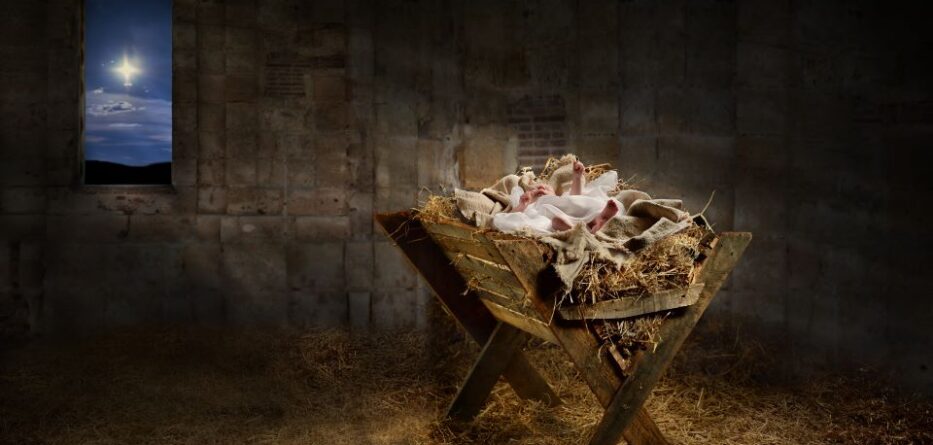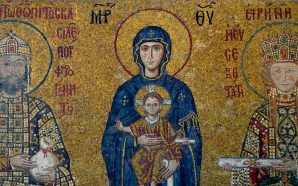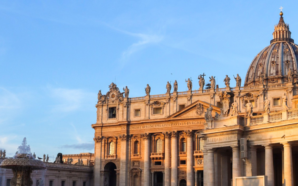Most Reverend Vincent Long Van Nguyen OFM Conv DD STL, Bishop of Parramatta
Homily for Christmas Day, 2023.
Readings: Isaiah 52:7-10; Hebrews 1:1-6; John 1:1-18
25 December 2023
The Incarnation inspires us to be companions of the suffering
Dear brothers and sisters,
“Behold, I am doing a new thing”. These words of the prophet Isaiah has provided the inspiration for us to undertake the historic journey of renewal that culminated in our first Diocesan Synod. We have been emboldened to chart a new way forward for the local Church in Western Sydney and the Blue Mountains. Galvanised by the spirit of Jesus that calls us to greater communion, participation and mission, we have been enriched rather than torn apart by our differences. Though, the road towards a new horizon is full of challenges, we have decisively embraced a way of being Church that is more aligned with the poor, the suffering, more at service of the common good and God’s creation.
Nowhere else is this summons towards newness more radical and crystal clear than the Incarnation. Christmas is the venue for possibility. Christmas is the in-breaking of cosmic kingdom of justice, love and peace. In Christ, God has come to make all things new. God has enabled us to imagine and build an alternative universe to the unjust, corrupt and unsustainable status quo. One can begin to dare to live again and flourish. Humanity is ushered to new level.
Christmas opens us to the dawn of this new era of God’s justice, love and compassion in Christ. The imperial culture of domination, exclusion and consumption can no longer hold sway. The trickle-down economy that favours the rich and disadvantages the poor can no longer be the only viable option. Christmas calls us to place the care of the vulnerable and the stewardship of all God’s creation at the centre of human endeavour. A new ethic of communion not just among humans, but with all life forms must guide our way of life.
On this solemn day, God’s Word assures us that darkness no longer has the upper hand. The world is no longer condemned but redeemed. God’s plan for us has become a reality even as the child is vulnerable and threatened. The seed of hope once sown would grow and realise its potential.
In the first reading, the prophet Isaiah comforts his people during the long and harrowing exile. Many of them have given up their ancestors’ faith and drifted away. Only a small group remains steadfast and these come to be known as the faithful remnants or the “Anawim”. They are not the former religious or political elites but often the poor, the dispossessed and the disadvantaged. It is the strength of their faith, endurance and steadfastness that makes God’s restorative vision possible. It is no wonder that they are seen as precursors embodying the spirit of the Humble Suffering Servant.
St John writing some 800 years later describes the birth of Jesus not only as a human being but as the crowning enfleshment of all that exists. The incarnation is God revealing himself in the flesh of the Christ child that encapsulates the materiality of all creation. Hence, John declares that “all that came to be had life in him” and “He was in the world that had its being through him”. The incarnation is God’s total Yes and unconditional love for us and for all his creatures.
Christmas then challenges us to embrace vulnerability not superiority, communion not dominion and downward mobility and not upward mobility. We marvel at the Creator God who enters into the chaos and fear of our world. We are taken back by the disarming presence of the Child Emmanuel who are surrounded by the lowliest people and the lowliest environment. It epitomises the upside down way of God. It subverts our way of thinking and acting. Yes, Christmas is God’s race to the bottom.
The incarnation is God’s total Yes and unconditional love for us and for all his creatures. In our Franciscan tradition, we maintain that the incarnation was not an accident of history. It was not plan B because we messed up plan A. In other words, it was not contingent on our sins. Jesus did not come to change the mind of God about humanity. Rather he came to change the mind of humanity about God. St Paul gave us a magnificent reflection in Colossians. “For in Him all things were created, things in heaven and on earth, visible and invisible. All things were created through Him and for Him. And in him all things hold together.”
Brothers and sisters,
In the light of the God who identified with the poor, powerless, rejected, persecuted and condemned, the Church needs to do what Pope Francis challenges us: go to the periphery, to be the presence of God for the poor and marginalised. The birth of Jesus signals God’s alignment with those who are at the edges of society. Let us pattern our lives on the self-emptying God. Let us learn to abandon our default position of self-interest and mutual exclusion that leads to an unsustainable future. Let us show to others the alternative future that is inspired and guided by the vision of the God of vulnerability and radical communion. This Christmas, as we contemplate the Christ child in the manger, let us commit ourselves to pray and work for justice in all its manifestations so that God’s reign will come in our world.








